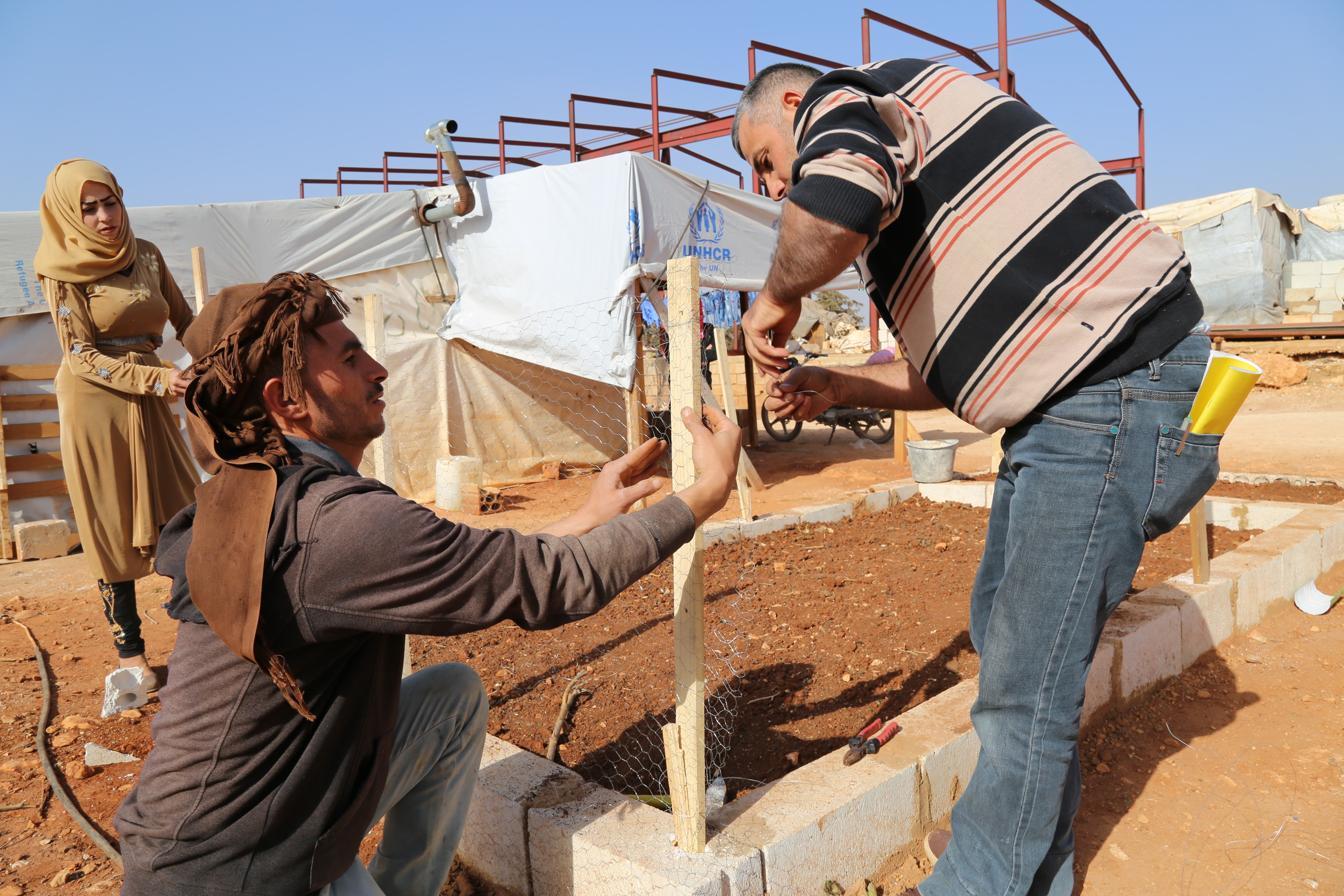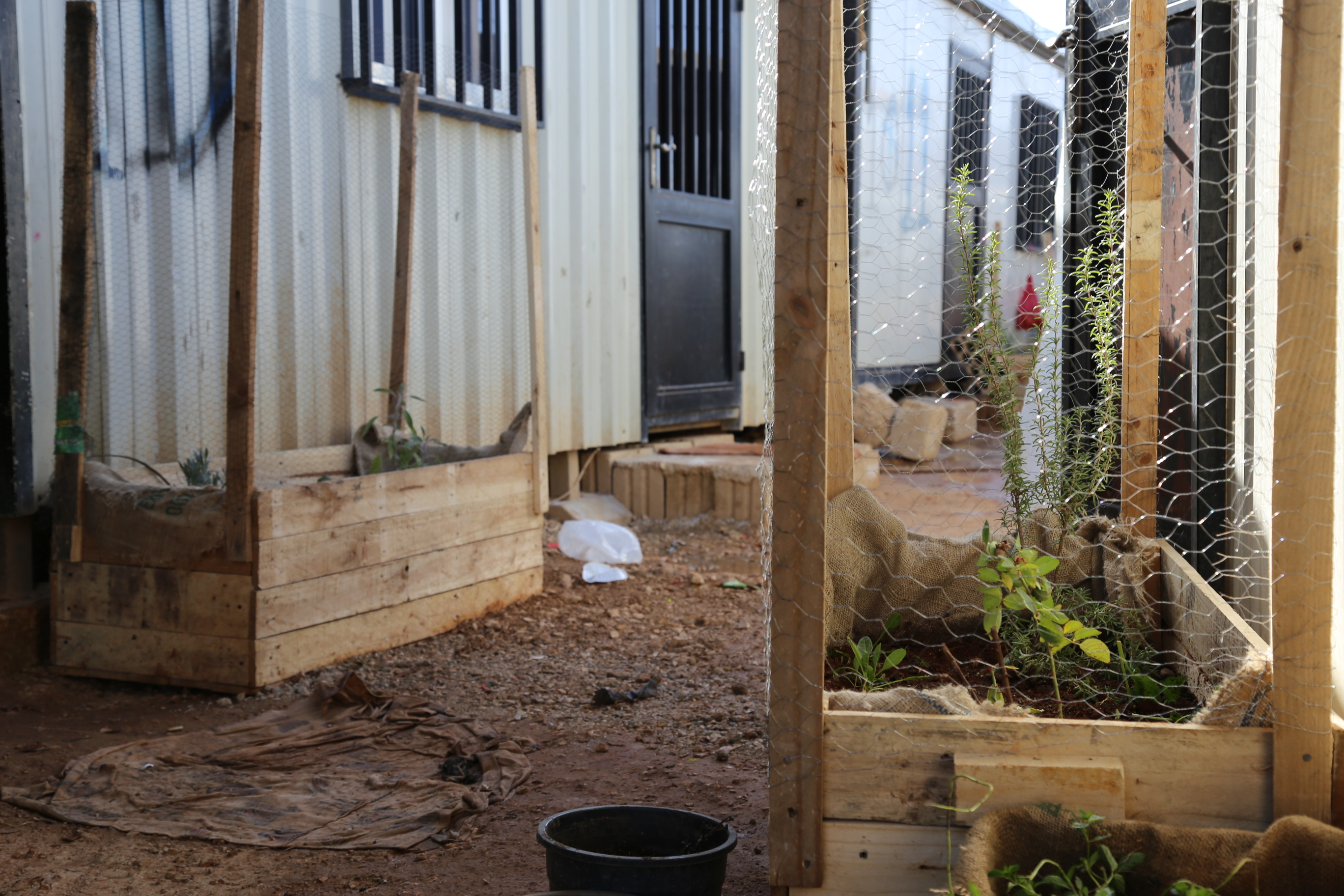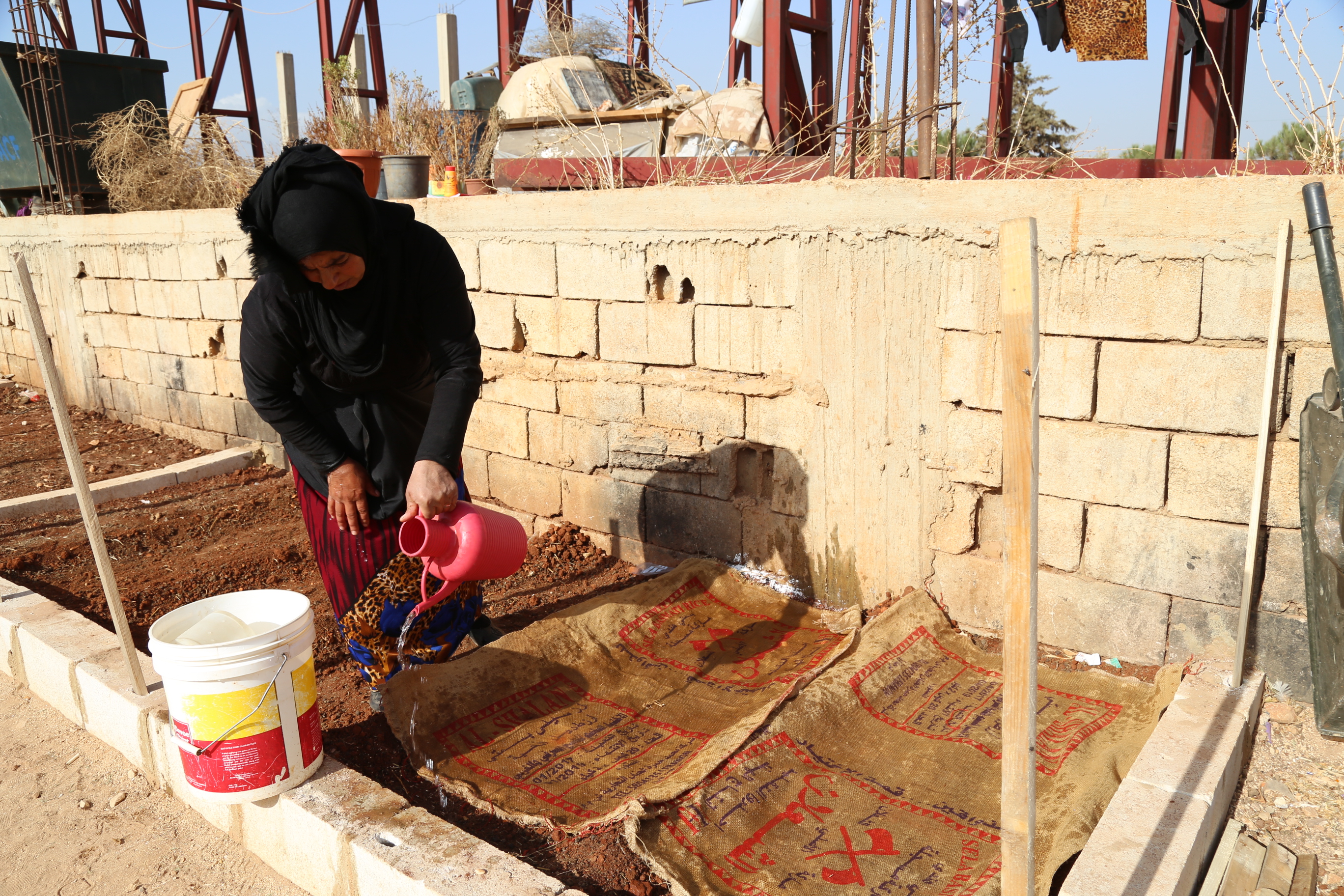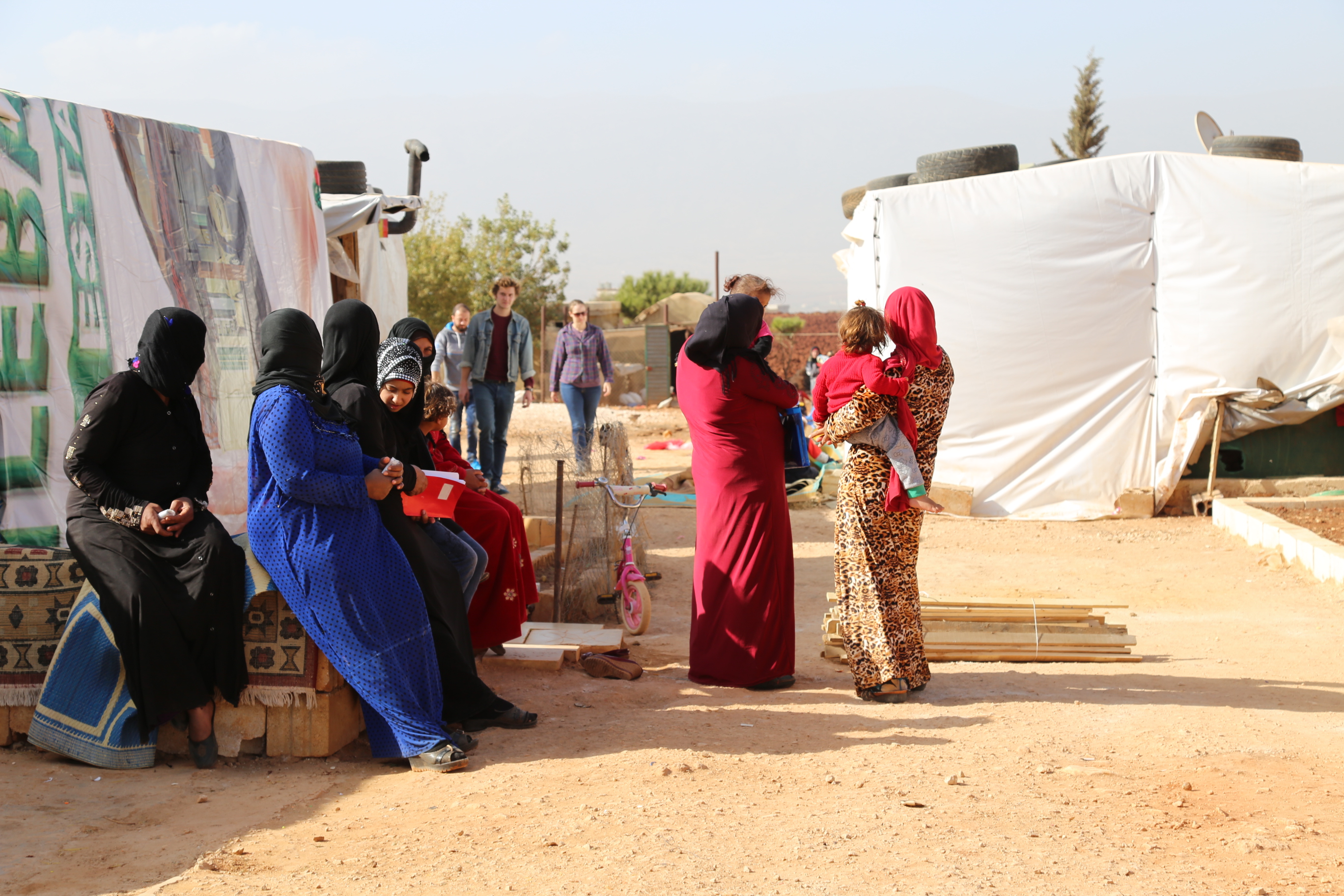Spring is getting closer and there is a certain anticipation among the people in a number of Informal Tented Settlements in Kamed el Loz, West Bekaa, Lebanon, for the flowering of the gardens where they have worked in recent months, as part of the Amel ‘Micro Gardening’ project.

They are actually organic vegetable gardens, from heirloom seeds, planted in small wooden blocks or bits of fenced land. Such seeds are one of the most important components of agricultural heritage, passed down from generation to generation, planted from one year to the next without needing to rebuy seeds, contract to hybrid seeds which are used widespread, globally. Heirloom seeds are also more nutritive, less water-consuming, and more resilient and resistant to disease due to successive years of natural adaptation and selection of the best seeds, rather than genetic modification.

In the last three months of 2017, 75 organic micro-gardens were created in five Syrian Informal Tented Settlements, and 75 individuals were trained in organic gardening. Amel’s trainers shared information with participants on organic agriculture, soil composition and care, water management, seed identification and selection, organic fertilizer, and pesticides.

This project – implemented in collaboration with World Food Program (WFP) and German Cooperation–
aims to enhance self-sufficiency and food security for refugees. Ghinwa Samhat, Project Coordinator, explains: “It helps refugees on different levels: it enhances their skills, improves their resilience in the sense of food security, and it also helps them socially and emotionally, Which for us is a major achievement.”
In fact, while the gardeners wait to see the fruits of their work, the neighborhood relations have improved, the neighbors meet every day to discuss their gardens and their work.

“It’s more pleasant to wake up in the morning and see all these green plants”, Diaa’din Qweider, from Damascus, says. “I enjoy being more in contact with the neighbours and greeting them and asking them about their progress in the project. We are closer now.”




 Creative Commons Attribution 4.0 International license
Creative Commons Attribution 4.0 International license